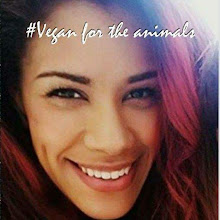However, in my quest to find the best veggie recipes out there, I've been cooking with A LOT of diced tomatoes. I've always used Muir Glen Organic tomatoes as those have the best taste and they're organic. Sadly, they are lined with BPA. So I emailed them and I asked why they use BPA and not just package in glass containers. Are you wondering what BPA is? Ok, here we go.......
Bisphenol A, also known as BPA has been under scrutiny as hazardous to humans since the 1930s. Yet it wasn't until 2008, after several governments issued reports questioning its safety, that some retailers removed products made of it from their shelves.
What is BPA and why should you avoid it?
Bisphenol A (BPA) is a synthetic estrogen used to harden polycarbonate plastics (used in some baby bottles, and bottled water) and in the epoxy resin used can linings. It was found in the bodies of 93 percent of the Americans tested by the Centers for Disease Control (CDC). In laboratory tests, trace BPA exposure has been shown to disrupt the endocrine system.
The endocrine system influences almost every cell, organ, and function of our bodies, and is instrumental in regulating mood, growth and development, tissue function, metabolism, and sexual function and reproductive processes. Disruption of the endocrine system triggers a wide variety of disorders, including chromosomal and reproductive system abnormalities, cancer, cardiovascular system damage, adult-onset diabetes, obesity and resistance to chemotherapy.
As with many toxic chemicals, infants and young children are at the greatest risk of harm because their bodies are still developing. The National Toxicology Program has expressed concern that children’s exposure to BPA may lead to problems with brain and reproductive system development and behavior. The Environmental Working Group (EWG) has compiled this list to help you avoid BPA exposure.
Limit your exposure to BPA from canned foods and plastic containers:
- Almost all canned foods (including canning jars) sold in the U.S. have a BPA-based epoxy liner that can leach BPA into the food inside. Pregnant women and young children, especially, should limit their consumption of canned foods to avoid BPA. (If you’re feeding your baby infant formula, use powdered formula because it has the least BPA.)
- Buy fresh or frozen vegetables instead of canned.
- For canned veggies and fruits, choose glass bottles where available; the lids may contain BPA but less than cans.
- For canned beans, choose Eden Foods brand because the cans are BPA-free (Cool, right?!)Or soak and cook dried beans; It’s a little more work but it also costs less.
- Rinsing canned fruit or vegetables may reduce the amount of BPA you ingest.
- Make a special effort to avoid canned prepared foods like pastas and soups.
- Use glass or a BPA-free plastic baby bottles.
- Avoid polycarbonate containers (marked with a #7 or ‘PC’), especially for children’s food and drinks.
- Use glass incstead of plastics. However, plastics marked with a #1, 2, 4, and 5 don’t contain BPA and are generally safer for food.
- Don’t microwave plastics or fill them with hot liquids.
- Wash plastics on the top shelf of the dishwasher, where the water is cooler, or by hand.
- Avoid old, scratched water bottles.
- Use stainless water bottles without plastic linings.
- Buy fresh to minimize packaging
For more info:
The Environmental Working Group (EWG) recommends eating foods that have been processed as little as possible. Processing techniques detract from nutritional value, and chemicals from food packaging can leach into what you’re eating. For food packaging, EWG recommends avoiding bisphenol A (BPA) and the Teflon and Scotchgard family of perfluorochemicals (PFCs).
Visit Bisphenolafree.org to learn more.
I'It took about 3 weeks to get a response from Muir Glen in regards to my inquiry. They didn't really answer it but here's what they had to say:Dear Valued Consumer,
Thank you for contacting Muir Glen regarding bisphenol-A in food packaging. Bisphenol-A is a critical component of protective coatings used with metal food packaging and provides important quality and safety features to canned foods.
Scientific and government bodies worldwide have examined the scientific evidence and consistently have reached the conclusion that BPA is not a risk to human health. Recent examples include comprehensive risk assessments in Japan and Europe and a review by an independent panel of experts organized by the Harvard Center for Risk Analysis. The can coatings used in Muir Glen packaging comply with the U.S. Food and Drug Administration requirements for use in food contact applications. These coatings have long played an essential part in food preservation, helping to maintain wholesomeness, nutritional value, and product quality.
We work closely with our suppliers to ensure that all of the food ingredients and packaging materials we use are fully in compliance with U.S. Food and Drug Administration requirements and meet our high quality standards.
We will continue to monitor this situation. If you have any further questions, please feel free to contact us. Your questions and comments are always welcome. For more information on the safety of metal food containers, the U.S. Food and Drug Administration press office may be contacted at (301) 436-2335.
Sincerely,
Bobbi Hart
Consumer Services
Consumer Services
Kinda seems pointless to put an organically grown product in a can laden with BPA. Guess it's time to suck it up and dice my own tomatoes!!!


No comments:
Post a Comment